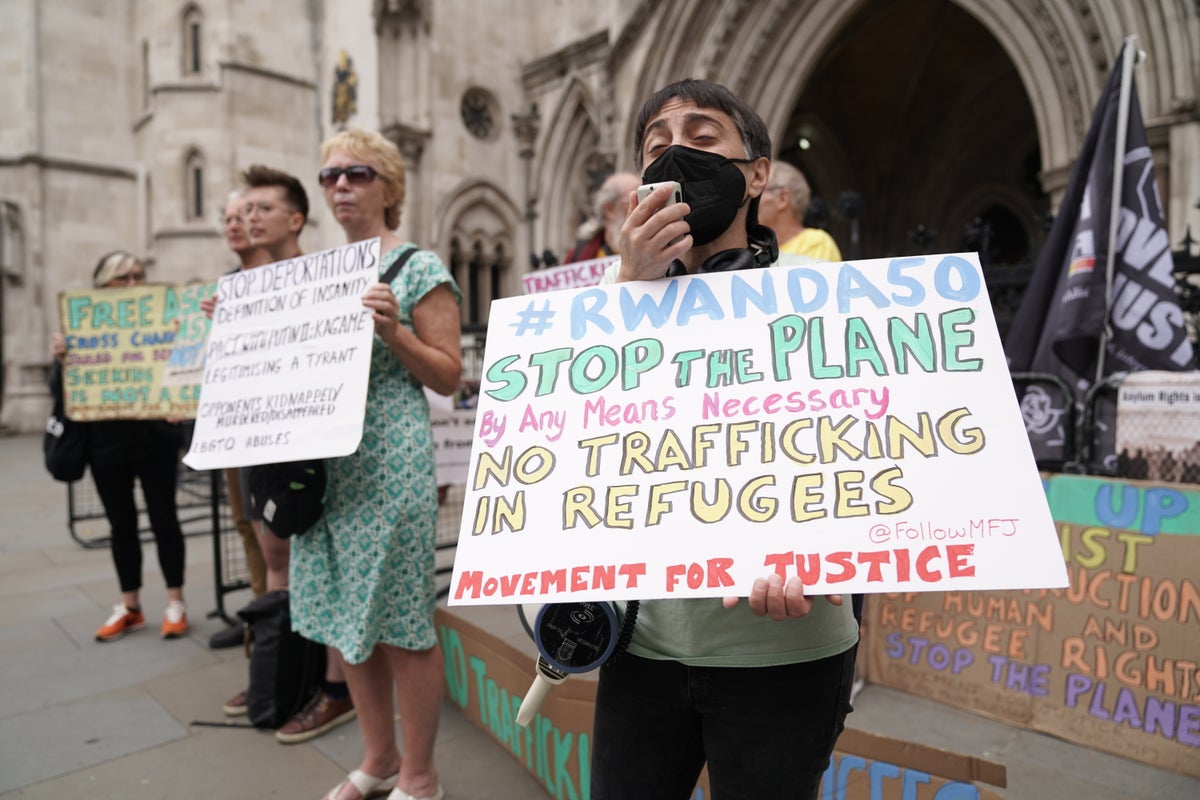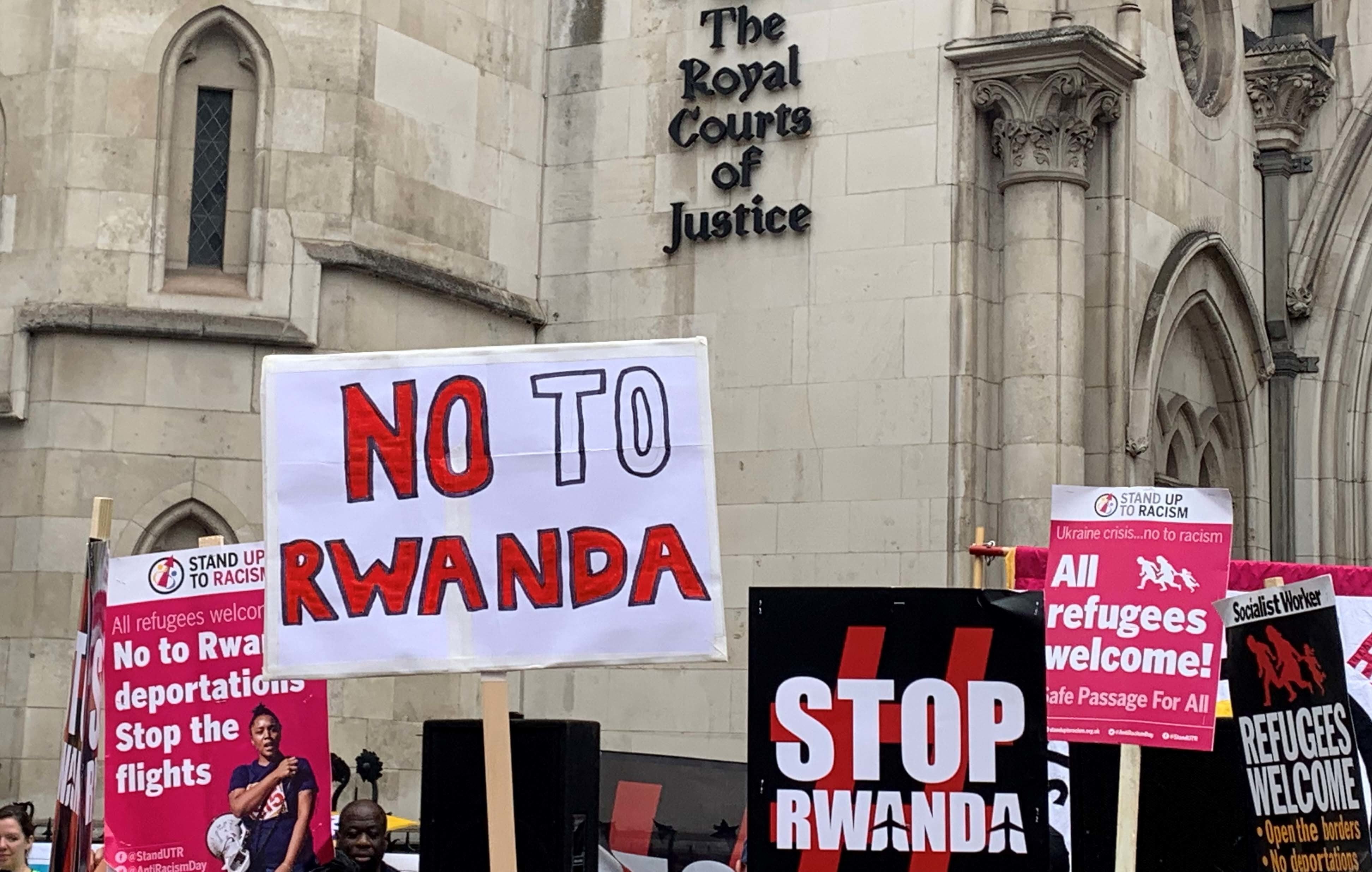
The government’s policy of removing asylum seekers to Rwanda has been ruled lawful by the High Court.
Although the Home Office has been cleared to send migrants to Kigali, Lord Justice Lewis quashed the decisions to remove eight people who launched legal challenges against the plans. He said that the cases must be reconsidered by the home secretary.
Charities condemned the judgement, saying that they were “very disappointed” in the outcome.
Clare Moseley, the founder of Care4Calais, one of the charity’s to bring the legal challenge, said that “potentially thousands more people seeking asylum in the UK....are facing the threat of removal to Rwanda under this cruel and unworkable policy.”
So what happens next?
The two charities who brought the legal action, Care4Calais and Asylum Aid, have both said that they are looking at the possibility of an appeal.
Ms Moseley, Care4Calais founder, said they were “discussing next steps with our legal team.”
She continued: “This is the first court to consider the lawfulness of the UK-Rwanda deal. We will consider our position in respect of the Court of Appeal.”
Alison Pickup, director of Asylum Aid, said: “We’ll be looking closely at this judgement to see if there are any grounds for an appeal.”
If they do launch an appeal, this will head to the Court of Appeal. The case could even go all the way to the Supreme Court if a further appeal is granted.
Raza Hussain QC, a lawyer who respresented a group of claimants in the case, also indicated that they would consider appealling the ruling.
Any applications for permission to appeal will be considered at a hearing on 16 January.

What is the impact on individual asylum seekers?
The eight asylum seekers named in this particular legal challenge have now had their deportation decisions quashed, meaning that they cannot be sent to Rwanda.
Lord Justice Lewis’s judgement also said that “the home secretary must consider properly the circumstances of each individual claimant” going forward.
This opens the door for many more deportation challenges for other asylum seekers who are told they will be sent to Kigali.
According to the judgement, “the home secretary must decide if there is anything about each person’s particular circumstances which means that his asylum claim should be determined in the United Kingdom or whether there are other reasons why he should not be relocated to Rwanda”.
Unless the home secretary can prove that she has properly considered these factors, she will not be able to deport anyone to Rwanda. This also means that the numbers deported to Rwanda will likely be very small, making the policy an unlikely deterrent for those crossing the Channel.

When was the legal action first brought?
The legal challenge was first brought at the end of April this year. It contended that the removal of people from the UK to Rwanda was unlawful as it penalised people on the means of their entry to the UK, in direct contravention of the Refugee Convention.
At the time, Toufique Hossain, director at Duncan Lewis Solicitors said: “The government’s proposal to remove asylum seekers to Rwanda is cruel, unworkable and would be in breach of the UK’s obligations under the European Convention on Human Rights and the Refugee Convention.
“The proposal is a full frontal attack on the most fundamental tenets of domestic and international law.”
Mark Serwotka, general secretary of the PSC union, which represented border force staff, said: “PCS is bringing this action on behalf of our memebrs in the Home Office who will be expected to implement this policy; and on behalf of the refugees affected by it.”
He claimed the Home Office was “again playing fast and loose with our members’ safety and well-being.”







